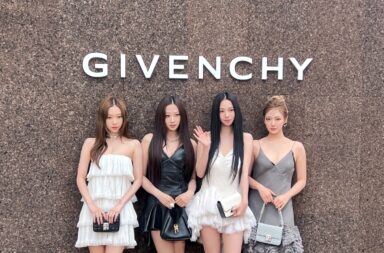 Music and lyrics are often synonymous, going hand in hand. Music is used to express emotions or tell stories, and oftentimes, these emotions or stories are told most easily through the lyrics of a song. While some may consider lyrics not as essential in music than the sound itself due to music being considered the universal language of the world, lyrics still add sentiments to songs and make music more relatable. Lyrics are a huge draw to some, especially for those looking for a connection, and as such, is usually a very important aspect in most forms of music.
Music and lyrics are often synonymous, going hand in hand. Music is used to express emotions or tell stories, and oftentimes, these emotions or stories are told most easily through the lyrics of a song. While some may consider lyrics not as essential in music than the sound itself due to music being considered the universal language of the world, lyrics still add sentiments to songs and make music more relatable. Lyrics are a huge draw to some, especially for those looking for a connection, and as such, is usually a very important aspect in most forms of music.
However, in K-pop, lyrics have a relatively reduced role, and especially as of late, the importance of lyrics in K-pop has been dwindling. While this argument can be applied to most genres of dance music as there is more of a focus on sound and entertaining rather than meaning or informing, it seems to be especially evident in K-pop. Even ballads — which by definition are meant to tell stories — under this genre are becoming less and less personal. This could be blamed on the artificiality of the genre, as the idols that rule it are carefully maintained by large companies whose main aim is to make money. With companies managing idols and making future hits for them, the idols themselves usually have little chance to apply themselves in the lyrics of their songs. But while this is a major factor in the unique lack of importance of lyrics in K-pop, it is not the only one.
One major factor in the minimal role lyrics have taken is K-pop’s focus on the global market. The genre is currently focused on riding the Hallyu wave, exporting their idols and their ridiculously catchy songs as products to be sold. As I said before, music is often considered the universal language –being understood by everyone in the world — and with the entire world being K-pop’s very ambitious target, they focus very much on this language. There is definitely more focus on sound when producing K-pop songs as these sounds can be appreciated by everybody who is willing to take a listen.
Because honestly, why would producers want to put focus on the lyrics of the song when a good portion of the demographic they’re catering to have no understanding of the language the lyrics are wrote in? They’d rather make a song whose sound appeals to the masses at first listen, rather than have lyrics whose true meaning won’t be appreciated until it’s translated.  And even if a work is translated, the fans reading the translations suffer a loss of cultural depth, rendering most cultural metaphors useless.
And even if a work is translated, the fans reading the translations suffer a loss of cultural depth, rendering most cultural metaphors useless.
Take for example, Secret‘s “Love is MOVE.” The song features the line “Girls are like reeds” referencing that they are easily swayed to have a change of heart. Certain fans without the cultural context can be left unaware of this until they go out and research its meaning, but with a song like “Love is MOVE,” would a normal fan really go through all that effort?
But producers still need to create words for their artists to sing, and they still aim to be as globally pleasing as possible. To fulfill their needs, they either turn to universal onomatopoeias and made-up words — a la “bamratatata” or “boomshakalaka” — or the widely accessible English language. They rely on either of these to create hooks that the remainder of the song revolves around as they are able to appeal to the masses and prove to be the more memorable parts of a song.
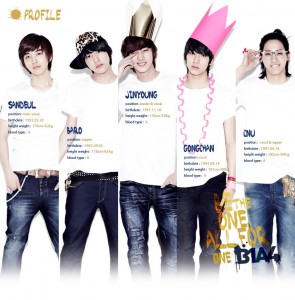 But with the problem of using English and made-up words in songs is that the end product has a fairly large chance of making no sense. English is often butchered and misused grammatically, leading to some interesting phrases such as Super Junior‘s “I naughty, naughty” and B1A4‘s “zoom zoom my heart like a rocket.” And what makes it worse is that with most idols not fluent in English, pronunciation is often off, leading to some awkward moments such as Jaejoong‘s rhyming of “fish” with “cash.” Add made-up words resembling baby talk and needless to be said, the end product of the song often ends up muddled and confusing when not handled right.
But with the problem of using English and made-up words in songs is that the end product has a fairly large chance of making no sense. English is often butchered and misused grammatically, leading to some interesting phrases such as Super Junior‘s “I naughty, naughty” and B1A4‘s “zoom zoom my heart like a rocket.” And what makes it worse is that with most idols not fluent in English, pronunciation is often off, leading to some awkward moments such as Jaejoong‘s rhyming of “fish” with “cash.” Add made-up words resembling baby talk and needless to be said, the end product of the song often ends up muddled and confusing when not handled right.
And if an artist doesn’t even know the meaning of their song, how are they supposed to properly sell it? f(x) had trouble figuring out what the lyrics of their very nonsensical songs meant. With the artists themselves confused about the meaning of their own songs, what hope is left for fans to understand them? Furthermore, while f(x)’s songs were easy enough for them to portray — being fun and nonsensical — despite their lack of understanding, what if another idol couldn’t understand their muddled up song? Their potential as performers won’t be tapped into as they can routinely perform the song as they practiced, but they can’t emote or bring something extra to the stage during their performances.
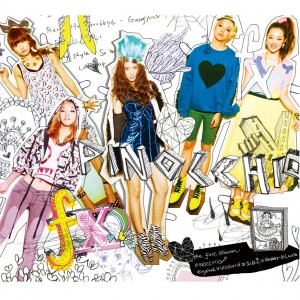 But most definitely, not all K-pop songs are muddled or confusing in meaning. K-pop does try to create scenarios or touch on deeper themes. But when K-pop does attempt to create and tell of a scenario, it often ends up an overused or general theme such as crushes, heart break, and the like since they are topics most can relate to. Furthermore, since idols are relatively young and spend most of their lives training rather than living their lives, these topics and feelings are easier for them to draw onstage or replicate from another artist who performed with a similar topic before. Also, countless concepts can be made to fit under these very universal themes, and with K-pop being the visual market that it is, a creative concept is crucial.
But most definitely, not all K-pop songs are muddled or confusing in meaning. K-pop does try to create scenarios or touch on deeper themes. But when K-pop does attempt to create and tell of a scenario, it often ends up an overused or general theme such as crushes, heart break, and the like since they are topics most can relate to. Furthermore, since idols are relatively young and spend most of their lives training rather than living their lives, these topics and feelings are easier for them to draw onstage or replicate from another artist who performed with a similar topic before. Also, countless concepts can be made to fit under these very universal themes, and with K-pop being the visual market that it is, a creative concept is crucial.
But while these universal topics are flexible and easily accessible for idols, it’s not entirely original or even personal for that matter. These topics can be very strong and effective if there is some depth behind it, but rarely do these lyrics go that far. While an idol may be telling about being heartbroken and looking sad onstage, there may be nothing personal or uniquely specific about the song they are singing. While one may be able to relate to the broad topic of heartbreak the lyrics speak of, the lyrics usually only really talk about the topic at the bare minimum, rarely deviating in going a bit further. And with countless songs talking about the same broad topic again and again, one can only take so much before things get stale.
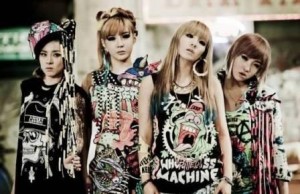 Furthermore, as K-pop is a very visual aspect, music videos and concepts are often used to convey meaning to a song instead, a role lyrics usually play. For example, there is 2NE1‘s Ugly. While the MV does a great job in conveying the message that everybody feels ugly sometimes and one shouldn’t feel bad about it, the lyrics don’t do that well of a job. While the lyrics let 2NE1 be shown at a more relatable, versatile, and more vulnerable light, there is a pretty big difference in the message of the video and lyrics. While that difference might have added a bit of an intriguing irony to the single, it just shows how lyrics are being used as vehicles for music videos and concepts, when it most usually is the other way around.
Furthermore, as K-pop is a very visual aspect, music videos and concepts are often used to convey meaning to a song instead, a role lyrics usually play. For example, there is 2NE1‘s Ugly. While the MV does a great job in conveying the message that everybody feels ugly sometimes and one shouldn’t feel bad about it, the lyrics don’t do that well of a job. While the lyrics let 2NE1 be shown at a more relatable, versatile, and more vulnerable light, there is a pretty big difference in the message of the video and lyrics. While that difference might have added a bit of an intriguing irony to the single, it just shows how lyrics are being used as vehicles for music videos and concepts, when it most usually is the other way around.
And even then, some music videos and concepts deviate entirely from the song or lyrics, ironic considering both are really supposed to complement the song, not get complemented by it. The lyrics of T-ara’s “Lovey Dovey” center around loneliness, but one wouldn’t know that judging from the very chipper feel of the song and its accompanying club MV.  Furthermore, the ones in charge of concepts in Core Contents Media must have one heck of an imagination since I would never have thought to relate zombies with this song, and I still marvel how they were able to create that melodramatic drama MV to go with the song.
Furthermore, the ones in charge of concepts in Core Contents Media must have one heck of an imagination since I would never have thought to relate zombies with this song, and I still marvel how they were able to create that melodramatic drama MV to go with the song.
Also, there are the lyrics for SNSD‘s “The Boys.” It was marketed as girl power with their warrior-esque princess teasers, but the lyrics of the song only speak of girls further motivating boys. While looked under a certain context and analyzed, it could be interpreted as a girl power song, but honestly when looked at face value, the lyrics and their concept are a bit contradicting. All of this shows how little value lyrics have within K-pop as, like I said before, is less of a priority compared to concepts and music videos.
 And all the the shallowness and the lack of clarity in the lyrics in K-pop can only end up being a turn off for a fan. A fan can only take so much songs talking of the same topics or nonsensical ones before getting tired of researching up translations altogether, generalizing all K-pop songs as meaningless and lacking in depth. And this is a shame as there some very blatant exceptions to this unfortunate trend, those who honestly do put effort into their lyrics, that a jaded fan is going to miss.
And all the the shallowness and the lack of clarity in the lyrics in K-pop can only end up being a turn off for a fan. A fan can only take so much songs talking of the same topics or nonsensical ones before getting tired of researching up translations altogether, generalizing all K-pop songs as meaningless and lacking in depth. And this is a shame as there some very blatant exceptions to this unfortunate trend, those who honestly do put effort into their lyrics, that a jaded fan is going to miss.
There are the likes of Brown Eyed Girls and Tablo, whose lyrics are full of meaning, personalty, and social commentary. Some of their pieces are absolute masterpieces full of depth and meaning, and I feel bad for anyone who missed out on their work due to generalizing all K-pop songs as meaningless. Most idols actually have at least one lyrical gem in their repertoire, with songs like SNSD’s “Dear Mom” being examples. Also, fans may overlook pieces like Dana and Sunday‘s “One More Chance.” The processed sound was a bit of a turn off, and at face value, the song and its lyrics seemed shallow. But as described by Fannie, “One More Chance” was actually a sarcastic parody of common female stereotypes in Korea.
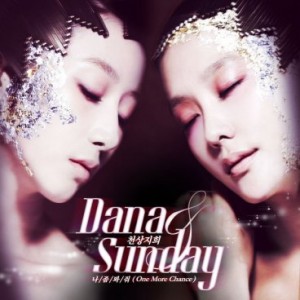 But with such an environment with such nonsensical lyrics, what are up-and-coming lyricist supposed to do to handle this type of market? Idols becoming more and more involved with their album productions, wanting to be seen a genuine performers instead of manufactured idols, and one of the first things they contribute with is writing lyrics. But with such unspoken — yet still unbroken — barriers present in lyric writing, how are these future lyricists, who most likely want to share a personal story, supposed to write anything that personal? Idol rappers are starting to write their own raps in an attempt to gain value and relevance, but honestly, how is Yubin supposed to write a meaningful rap about telling you to “Be My Baby?”
But with such an environment with such nonsensical lyrics, what are up-and-coming lyricist supposed to do to handle this type of market? Idols becoming more and more involved with their album productions, wanting to be seen a genuine performers instead of manufactured idols, and one of the first things they contribute with is writing lyrics. But with such unspoken — yet still unbroken — barriers present in lyric writing, how are these future lyricists, who most likely want to share a personal story, supposed to write anything that personal? Idol rappers are starting to write their own raps in an attempt to gain value and relevance, but honestly, how is Yubin supposed to write a meaningful rap about telling you to “Be My Baby?”
In the end of the day, in an attempt to attract a more general, more international audience, K-pop ends up limiting itself when it comes to its lyrics. It limits idols’ potential as performers, discourages lyricists from expanding, and keeps people from finding the true lyrical gems out there in K-pop. In a market that is very as visually dependent as K-pop, it’s almost astonishing at how little meaning is behind all of it.
But Seoulmates, what do you think? Are you satisfied with the state that lyrics has taken in K-pop? Are you fine just looking at K-pop at face value, seeing it as a form of mindless entertainent with its mindless eye candy and impossibly catchy tunes? Or do wish that there was more depth behind it all? Leave your insight below!
(SM Entertainment, YG Entertainment, Core Contents Media, Nega Network, WM Entertainment, snsdlyrics, kimchimedia, kpoplyrics, wonderfulgeneration, The Acronym, ArticlesBase, starwahida, JkMotion)
